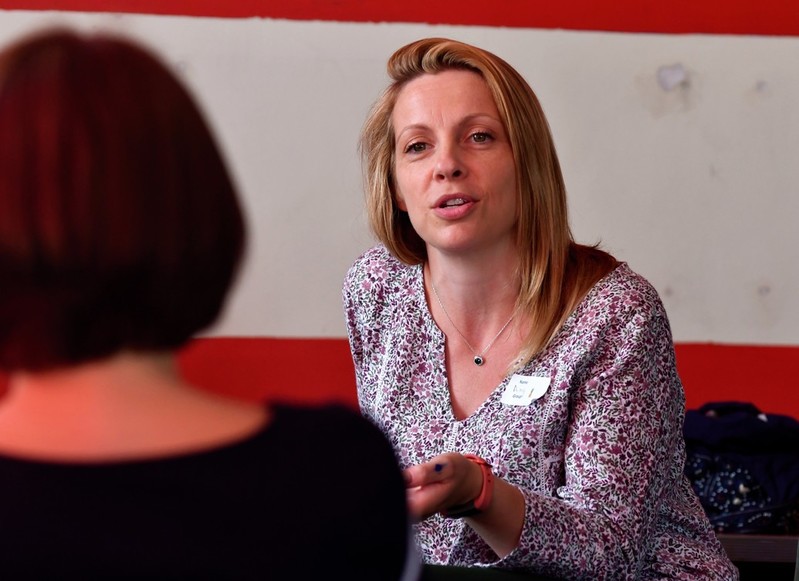Mental Health and Wellbeing studies

ADHD study
This study aims to evaluate adults with ADHD who also have a history of either psychosis or bipolar disorder whether stimulant (Lisdexamfetamine) vs. non-stimulant (Atomoxetine) medication reduces ADHD symptom severity at 6 months.
To take part you must be aged 18 or older, have an ADHD diagnosis, have a diagnosis of bipolar disorder or psychosis and currently not taking any medication for ADHD.
Contact our research team to find out more quoting 'SNAPPER' study
Recruitment end date is 31 May 2027
GLAD
This study will explore genetic and environmental factors associated with risk for depression and anxiety disorders, to understand these common disorders and help develop better treatments.
- You can take part in this study if you’re over the age of 16 and have experienced clinical anxiety and/or depression in your life (a medical diagnosis is not required).
- We’re also looking for participants who have not experienced anxiety or depression to help us compare and understand why some individuals develop these illnesses.
- If you choose to participate, please answer ‘yes’ to ‘Did you hear about the GLAD study through any NHS Trust’ and then select ‘Berkshire Healthcare’.
Visit the GLAD study website to find out how to take part (opens new browser tab)
Contact our research team to find out more quoting 'GLAD' study
Recruitment end date is 1 September 2028
Daily Life Experiences of Adolescents with ADHD
This study asks for participants aged 11-14 and their parent/caregiver to take part in short, daily questionnaires to understand the experiences of ADHD.
Contact our research team to find out more quoting 'Daily Life Experiences of ADHD' study
Recruitment end date is 31 December 2025
Psychosis study
A study that aims to establish the prevalence of pathogenic antibodies in patients with first episode psychosis.
You can take part in this study if you are aged 16-60 and have been experiencing at least one symptom of psychosis for at least two weeks but not longer than two years.
Contact our research team to find out more quoting 'PPiP2' study
Recruitment end date is 30 November 2027
Feeling Safer
Feeling Safer is a new six-month programme designed to help people feel safer, happier, and getting back doing more of the things they want to be doing. It is an online programme (accessed via a computer, tablet or smart phone) that is guided by a staff member.
The purpose of this research is to see whether Feeling Safer may be helpful for people.
To do this, everyone who takes part will receive Feeling Safer. We then compare how people were feeling before Feeling Safer to how they felt afterwards. The research is for adults (16 years+) who feel very concerned that others are trying to harm them in some way, and are attending mental health services for a diagnosis of psychosis.
Contact our research team to find out more quoting 'Feeling Safer' study
Recruitment end date is 30 January 2026
Virtual Reality Study
Phoenix Virtual Reality therapy is for people attending psychosis services, aged between 16 and 30 years old, who are feeling low in self-confidence. The Virtual Reality therapy is an easy to use, step-by-step programme that provides experiences to help build up positive self-beliefs.
Contact our research team to find out more quoting ‘Phoenix’ study
Recruitment end date is 31 March 2026
Sleeping Better
This study has pioneered the treatment of sleep problems in psychosis, conducting feasibility trials with patients at ultra-high risk of psychosis, with patients diagnosed with psychosis, and with people admitted to psychiatric hospital.
The purpose is to find our whether ‘Sleeping Better’, an eight-session psychological therapy, can improve a person’s sleep. We also wish to see whether Sleeping Better may bring other benefits to a person’s life, such as better mood, fewer worries, and better concentration.
Contact our research team to find out more quoting ‘Sleeping Better' study
Recruitment end date is 31 December 2026
Prolonged Grief study
Prolonged Grief Disorder is a newly recognised mental health problem arising after a bereavement. This study is investigating the acceptability of a new cognitive therapy programme for PGD to bereaved adults.
The study involves working through the therapy programme online via computer or smartphone app, with guidance from a therapist via secure messaging and telephone/video calls, for three months.
Contact our research team to find out more quoting ‘Prolonged Grief’ study
Recruitment end date is 31 May 2027